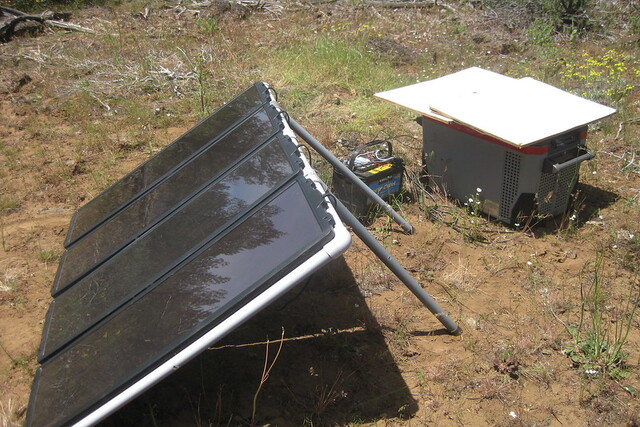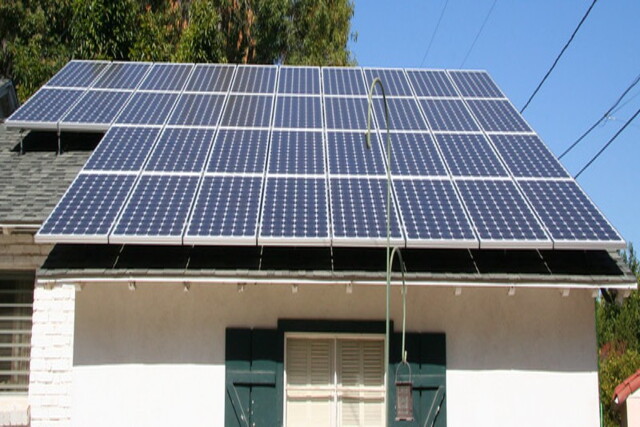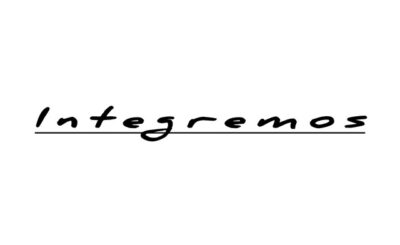Solar Energy Kit for Home use offers an accessible and eco-friendly way to harness sunlight for power, allowing homeowners to cut energy expenses and lessen their need on fossil fuels. It provides an affordable means of using sunlight to generate power, therefore minimizing the need for fossil fuels and energy expenses. In this article, we’ll delve into the cost of solar energy kits, their long-term savings, and key considerations when choosing the right solar power system kit for home.
Table of Contents:
What is a Solar Energy Kit for Home?
A solar energy kit typically includes solar panels, mounting hardware, and an inverter, which converts solar energy into usable electricity. Some kits also feature battery storage systems, allowing homeowners to store excess energy for use during cloudy days or nighttime.
Types of Solar Energy Kits

- Solar Panel Kits for Home On-Grid: With the help of these kits, homeowners may use their solar panels and the grid to generate electricity.They may also come with options for net metering, which allows households to receive credits for excess power produced, and they can drastically lower electricity bills.
- Solar Panel Kit with Battery and Inverter: This setup includes a battery storage system, which is ideal for those living in areas with unreliable grid access. Homeowners can store energy for use when solar production is low, providing greater energy independence.
Initial Costs of Solar Energy Kits
Upfront Investment
The cost of a solar home kit can vary significantly based on the components included, the size of the system, and local market conditions. A basic solar panel kit typically costs between $5,000 and $15,000, depending on the amount of panels and technology included. Higher-end kits, especially those with batteries and advanced inverters, can go beyond $20,000.
Installation Costs
In addition to the kit itself, installation costs can add another $1,000 to $3,000, depending on your location and the complexity of the installation. Many homeowners opt for professional installation to ensure the system operates efficiently and complies with local regulations.
Long-Term Savings Explained

Reducing Electricity Bills
One of the most significant advantages of installing a solar power system kit for home use is the potential to lower electricity bills. By generating your electricity, you can reduce or eliminate monthly payments to utility companies. On average, homeowners can save between $10,000 and $30,000 over 20 years, depending on local energy costs and system performance.
Government Grants and Incentive Programs
A lot of governments provide financial incentives to promote the use of solar power. Homeowners in the US can deduct a portion of the price of installation on their federal taxes thanks to the federal tax credit for solar energy. State and local incentives can further reduce upfront costs, enhancing long-term savings.
Increased Home Value
The sale price of your house may also rise if you get a solar energy package. Research indicates that houses equipped with solar panels get a higher price on the market than those without. An expertly placed solar panel kit is thought to be a great benefit., making your home more attractive to potential buyers.
Factors Affecting Long-Term Savings
Location and Sunlight Exposure
The amount of sunlight your home receives directly impacts the efficiency of your solar energy kit. Homes in sunny areas will typically generate more electricity and achieve a faster return on investment. Conducting a solar assessment to evaluate your home’s solar potential is a smart first step.
Energy Usage Patterns
Understanding your energy consumption is crucial in determining the best solar energy kit for home. Homes that use more energy during the day may benefit more from solar power than those that consume most of their energy at night. If your energy usage is high, consider a solar panel kit with battery storage to maximize savings.
System Maintenance
Solar energy systems require minimal maintenance, but it’s important to keep them clean and periodically check for any issues. A well-maintained system will operate at peak efficiency, ensuring that you realize the maximum savings over time.
Choosing the Best Solar Energy Kit for Home
Assessing Your Needs
When selecting a solar energy kit, start by assessing your energy needs. Calculate your average monthly electricity usage and consider future changes, such as additional appliances or electric vehicles. This will help you determine the appropriate system size.
Comparing Options
Research different solar panel kits for home on-grid and off-grid systems. Look for kits that include high-efficiency solar panels, reliable inverters, and reputable brands. Reading customer reviews and ratings can also provide valuable insights into product performance.
Professional Consultation
Consulting with a solar energy expert can help you navigate the complexities of choosing the right kit. They can provide a customized assessment of your home’s solar potential and recommend the best options based on your budget and energy needs.
Financing Options

Purchase vs. Lease
Homeowners have several financing options when it comes to solar energy kits. The system is available for lease, outright purchase, or Power Purchase Agreement. Each option has its advantages and disadvantages, so it’s essential to evaluate which aligns best with your financial situation.
Solar Loans
Many financial institutions offer solar loans that can help homeowners cover the upfront costs. These loans typically have favorable interest rates and repayment terms, making it easier to invest in solar energy without straining your budget.
Key Takeaways
- A solar energy kit for home can significantly reduce electricity bills and increase home value.
- Initial costs vary, but the long-term savings often outweigh the upfront investment.
- Location, energy usage, and system maintenance are crucial factors affecting savings.
- Consulting with a professional can help you choose the best solar power system kit for home.
By understanding the cost versus long-term savings, homeowners can make informed decisions about solar energy and contribute to a more sustainable future.
Conclusion
Investing in a solar energy kit for your home presents a unique opportunity to harness the power of the sun while enjoying long-term savings. Although the initial costs can be substantial, the reduction in electricity bills, potential government incentives, and increased home value make solar energy a financially sound choice. By carefully assessing your needs, comparing options, and considering financing, you can find the best solar energy kit for home that suits your lifestyle and budget.






